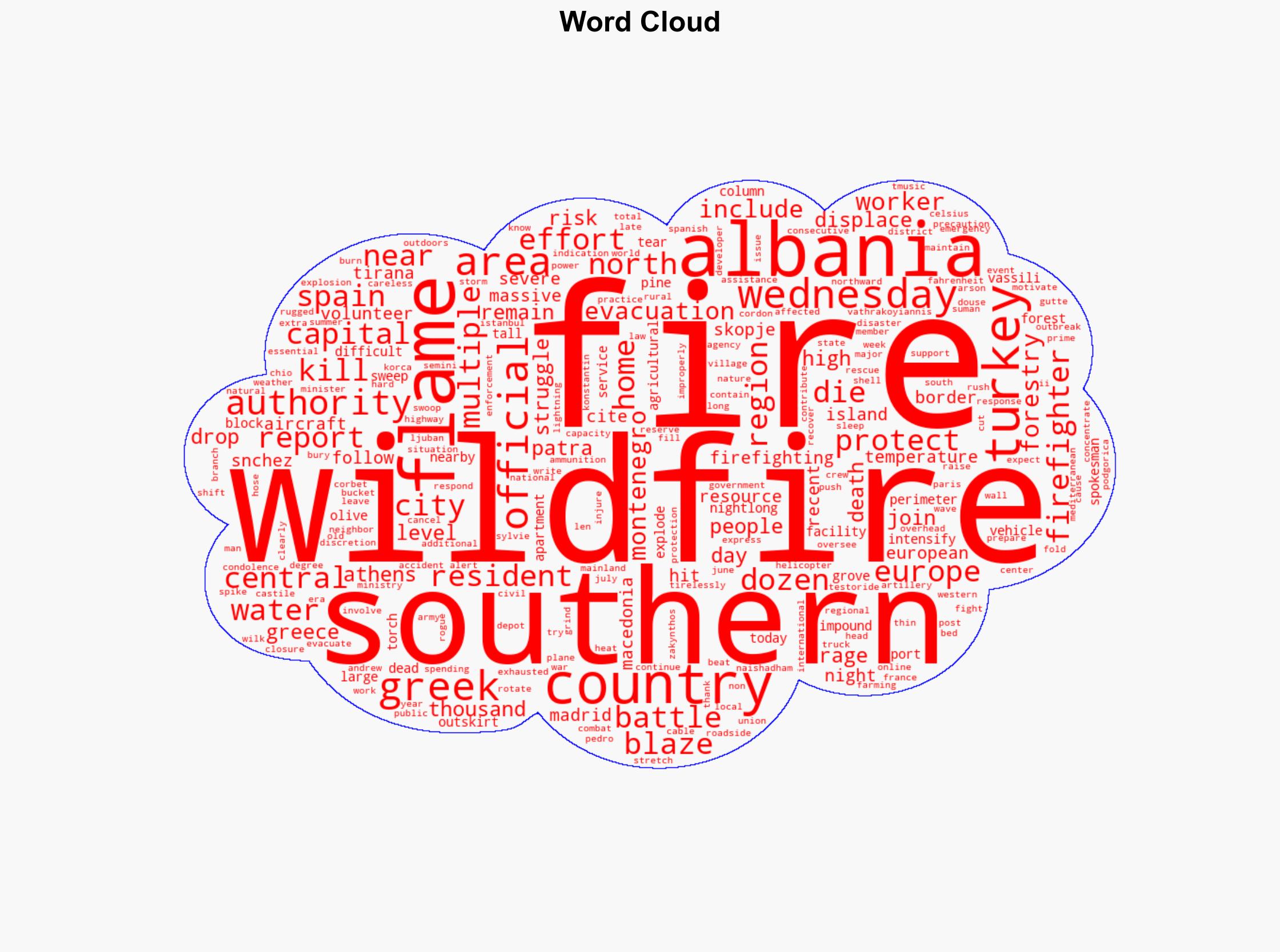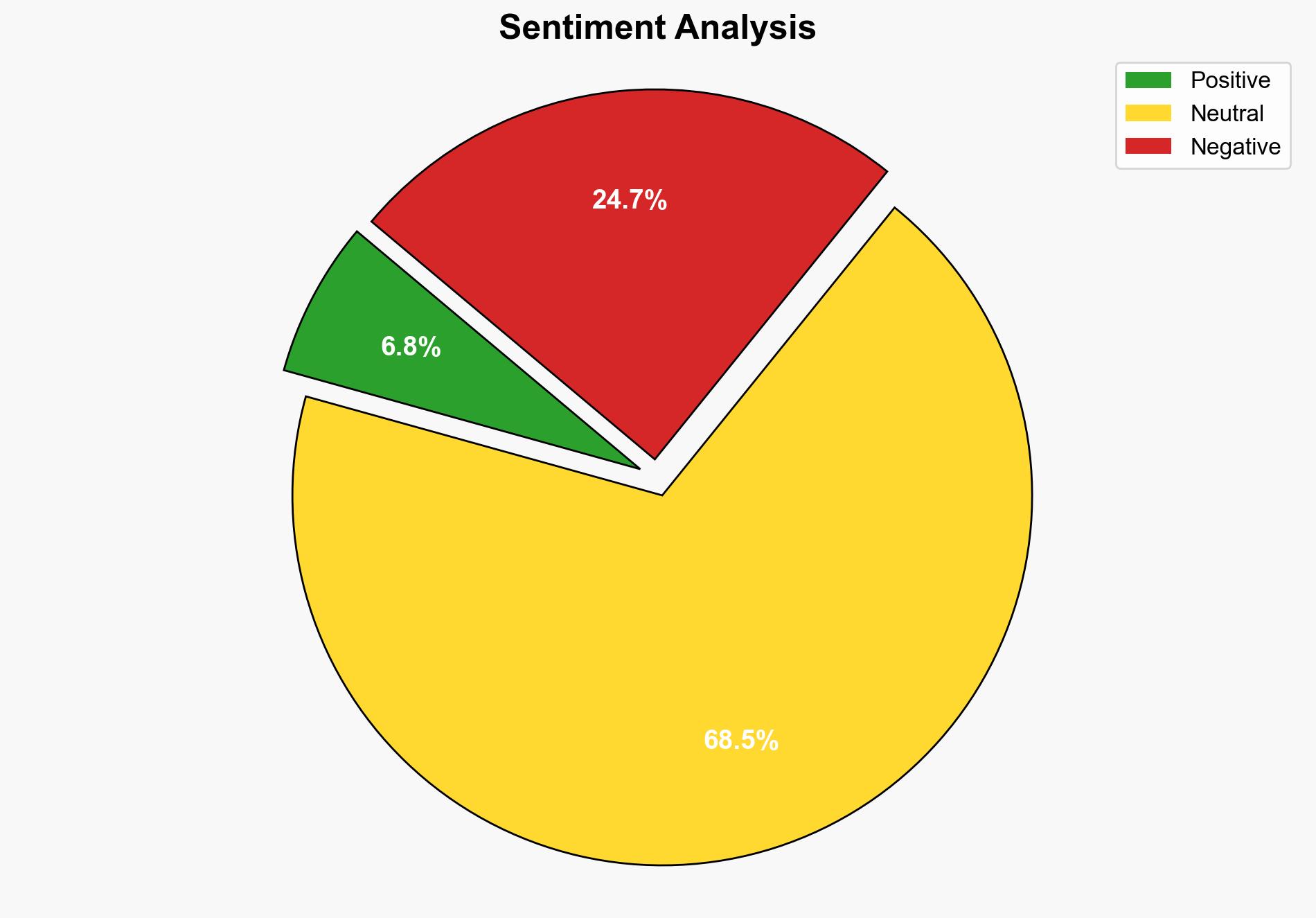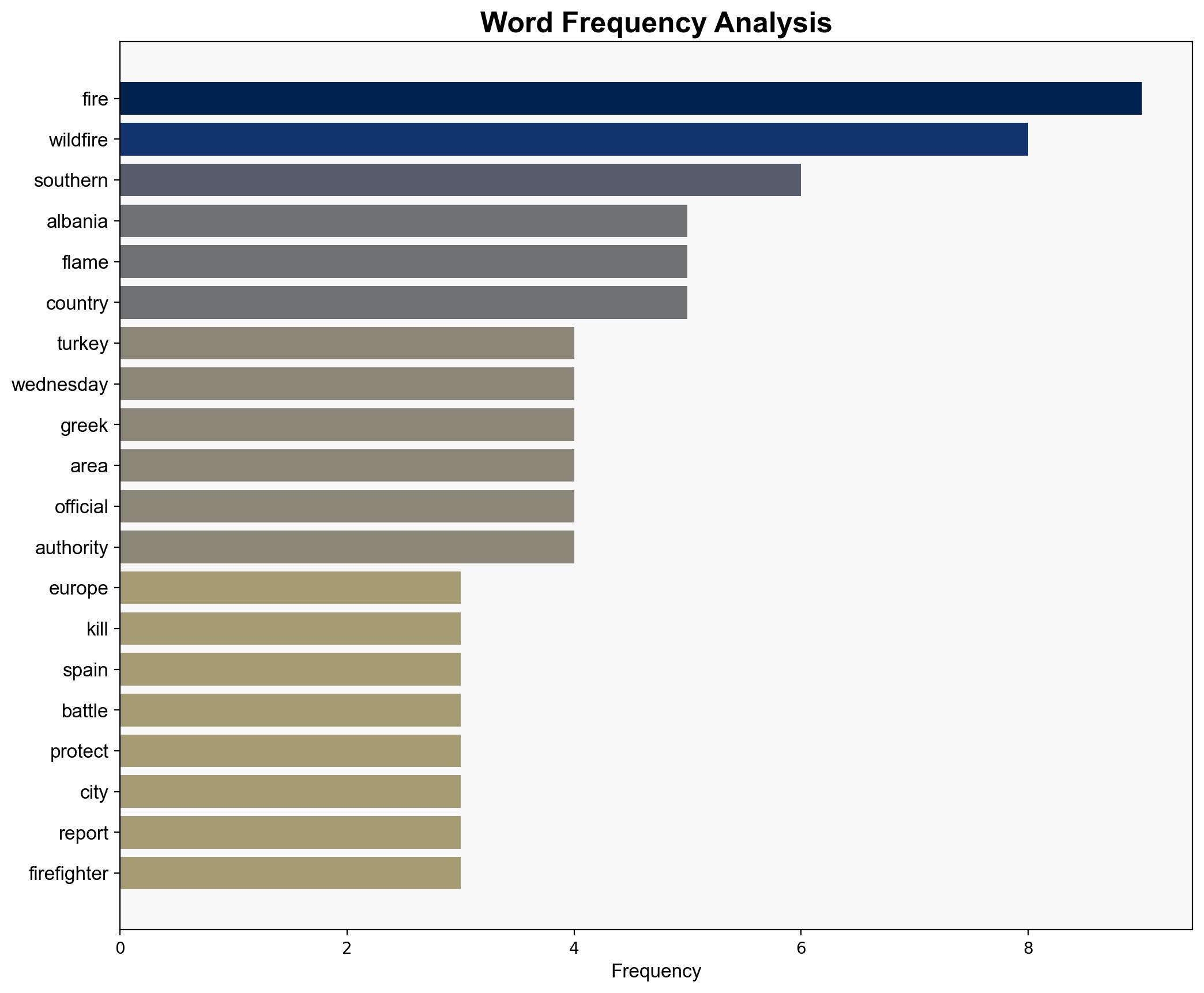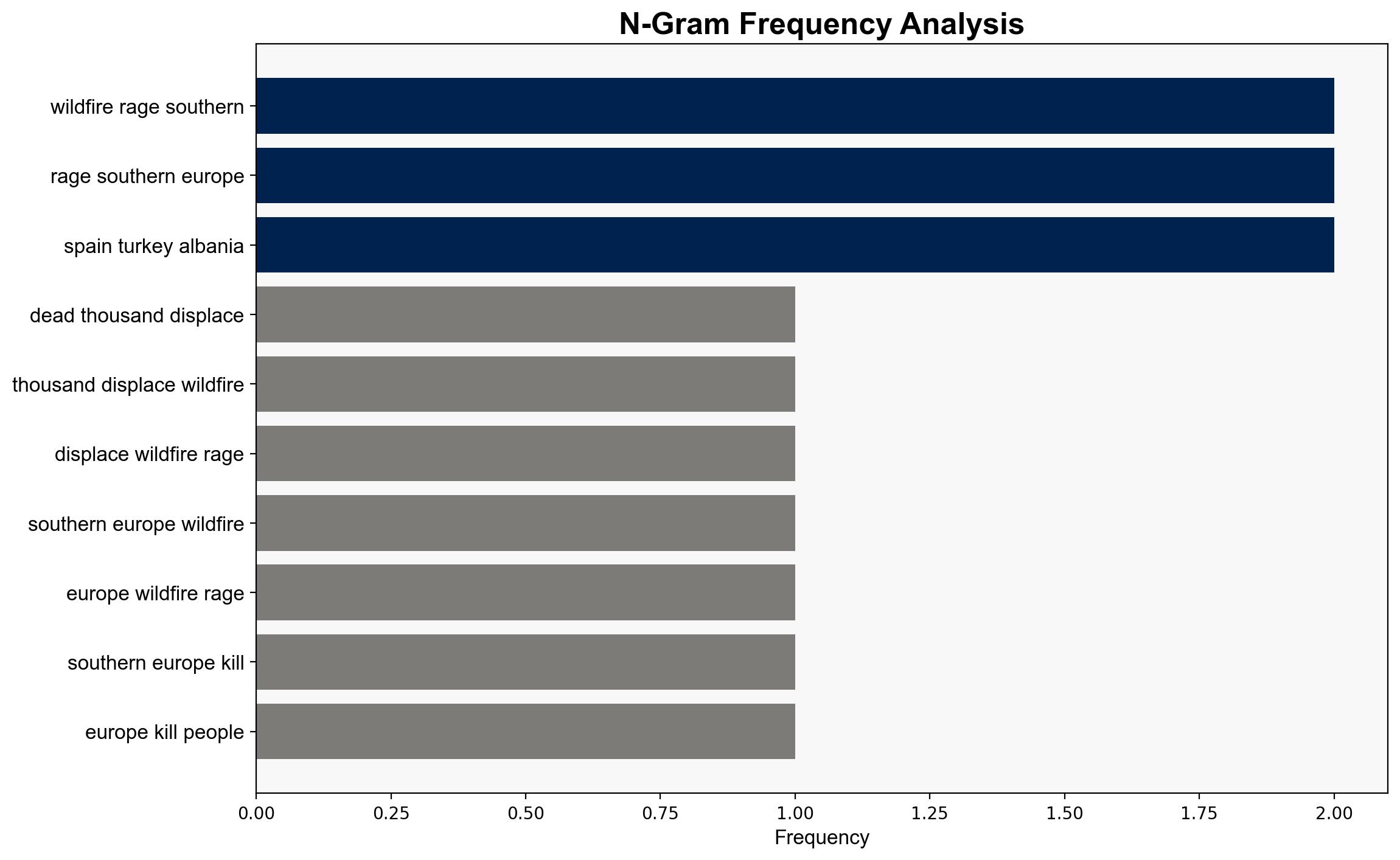At least 3 dead and thousands displaced as wildfires rage across southern Europe – ABC News
Published on: 2025-08-13
Intelligence Report: At least 3 dead and thousands displaced as wildfires rage across southern Europe – ABC News
1. BLUF (Bottom Line Up Front)
The most supported hypothesis is that the wildfires in southern Europe are primarily driven by a combination of extreme weather conditions and human negligence. This assessment is made with a moderate confidence level. Immediate action should focus on enhancing regional cooperation for firefighting resources and improving preventive measures against human-induced causes.
2. Competing Hypotheses
1. **Hypothesis 1**: The wildfires are predominantly caused by extreme weather conditions, such as heatwaves and lightning storms, exacerbated by climate change.
2. **Hypothesis 2**: The wildfires are primarily a result of human activities, including careless farming practices, poorly maintained infrastructure, and intentional arson by rogue developers.
Using the Analysis of Competing Hypotheses (ACH) 2.0, both hypotheses are evaluated. Evidence such as the heatwave and lightning storms supports Hypothesis 1, while reports of arson and negligence support Hypothesis 2. The presence of multiple causes suggests a complex interplay, but the environmental factors are more consistently reported across the region.
3. Key Assumptions and Red Flags
– **Assumptions**: It is assumed that climate change is a significant factor in the increased frequency and intensity of heatwaves. Additionally, it is assumed that local authorities have accurate data on the causes of the fires.
– **Red Flags**: There is a potential bias towards attributing the fires to climate change without fully investigating human negligence. The lack of detailed data on arson incidents and their motivations is a gap.
4. Implications and Strategic Risks
The ongoing wildfires pose significant risks, including economic losses from damaged infrastructure and agriculture, displacement of populations, and potential destabilization of affected regions. There is also a risk of cross-border tensions if fires spread to neighboring countries. The psychological impact on affected communities could lead to increased public dissatisfaction with government responses.
5. Recommendations and Outlook
- Enhance regional cooperation for resource sharing and joint firefighting efforts.
- Implement stricter regulations and monitoring of agricultural and industrial activities to prevent negligence-induced fires.
- Develop public awareness campaigns on fire prevention and safety measures.
- Scenario Projections:
- Best Case: Effective regional cooperation and preventive measures significantly reduce wildfire incidents.
- Worst Case: Continued fires lead to severe economic and social disruptions, with potential regional instability.
- Most Likely: A combination of improved management and continued environmental challenges results in a moderate reduction in wildfire incidents.
6. Key Individuals and Entities
– Pedro Sánchez, Spanish Prime Minister
– Vassili Vathrakoyiannis, Greek Fire Service Spokesman
7. Thematic Tags
national security threats, climate change, regional cooperation, disaster management




